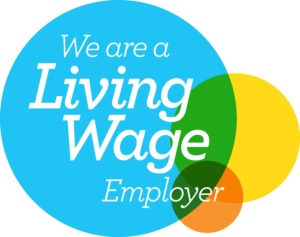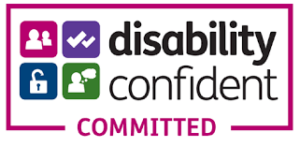More about MCR Pathways
MCR Pathways is a national, award-winning mentoring programme dedicated to addressing the inequality in education outcomes, career opportunities and life chances for young people in care and those experiencing disadvantage.
MCR Pathways is a national, award-winning mentoring programme dedicated to addressing the inequality in education outcomes, career opportunities and life chances for young people in care and those experiencing disadvantage.
An MCR Mentor helps a young person to explore what they enjoy, find out what they are or could be good at and think about what they want to do when they leave school. They link it back to what the young person needs to do in school and with their education to achieve their goal. Building a strong trusting relationship is the key to opening the door to explore options and opportunities. We believe a young person’s circumstances should never determine their education outcomes, job choices or life chances. It should always be about their talent and potential and the job of an MCR mentor is to help the young person find, grow and use it. It is challenging but can be fun and is hugely fulfilling.
As a priority, MCR supports young people in or on the edges of the care system. There is also a second group of young people who have experienced disadvantage which impacts their ability to concentrate and engage in school. This second group includes those living with extended family members, young carers or those living in families with addiction issues.
Every relationship is unique. What matters is not the time it takes to build a relationship but that a long term relationship is established. Only then can the mentor and mentee turn their attention to setting goals and future pathways for the young person. Relationship building can take up to 6 months and more. Young people vary, schools vary and young people are at different stages in their lives as well as different circumstances, age and year groups. Take your time and relax. As adults we are expected to be solution oriented and be ready to jump in with them. This is not what our young people want or need. Building a relationship is so important. Keep listening, don’t judge and stay open minded. This is what has the greatest impact.
Comprehensive training is provided by MCR Pathways. At the pre-mentoring stage, group exercises explore perceptions, values and judgements as well as the sharing of knowledge and skills to support our young people. There is training in child protection processes to give you confidence in what to do if anything is disclosed to you. Ongoing training is available throughout the academic year in sessions, mentor forums and drop ins as well as through a wealth of Online Courses on the MCR Mentor Hub. This training is designed to ensure you are confident and can become as knowledgeable as you want to be of the pathways available to your young person. This is in addition to the ongoing support and training provided by your fulltime Pathways Coordinator.
Absolutely. Our mentors come from all walks of life, many with no previous experience of working with young people. What our mentors have in common is that they care and want to make a difference. They have a shared desire to be a supportive adult who takes an interest in the life and education of their young person.
As with any human relationships sometimes the chemistry is not there. In the unlikely event that the relationship does not work out, the Pathways Coordinator will ensure that it is closed effectively and sensitively. We would then try to match a mentor to a new young person. The same approach would be taken with the young person.
We believe that every mentor has something to offer, no matter their age. Your life experiences and skills will be of benefit to the right young person. We will carefully match you to a young person so that both you and the young person may make the most of the mentoring journey. If you are retired and have some spare time there is no doubt that mentoring a young person will be rewarding and fulfilling.
MCR has set a minimum age of 21 to qualify to mentor. Our practice over the years has identified that one key attribute of a mentor is to have “life experience” and hence the minimum age. This should not deter anyone under the age of 21 from contacting MCR as we have other volunteering opportunities available, including tutoring, departmental support etc.
You don’t need any qualifications to get involved. A mentor is simply someone who cares, can offer encouragement and share knowledge and life experiences to help a young person realise their full potential. Listening skills and an ability to build a trusting relationship are the main determinants of success.
Certainly. If you take up a new job it is important to think about whether a new employer would allow you time to continue mentoring. We can help with that.
A mentor is not there as a counsellor or social worker. If anything causes you concern you should immediately pass it on to the Pathways Coordinator or alert the school’s Child Protection Officer if you feel your young person is in any immediate harm or risk. Your young person knows that anything that causes concern is not confidential and will need to be shared with school staff. We will take you through the simple rules at your training. Your Pathways Coordinator is there to support you and to deal with any issues or questions that arise.
Motivation, Commitment and Resilience – the three qualities we believe are most important to cultivate in our young people.
Please visit our Complaints page to read our process.
All meetings take place in the young person’s school grounds. Given the scale of our programme, it is a safe and easy space for both the mentor and young person. You will then have access to your Pathways Coordinator if you need anything. We want to encourage our young people to utilise everything schools have to offer while they have the opportunity. We know from experience and research that young people who stay on at school for as long as possible get much more from their education in achievements, qualifications and positive sustainable destinations. Although your mentoring formally ends when your young person leaves school, you can, if you want to, exchange details and continue your relationship.
Every relationship is unique. What matters is not the time it takes to build a relationship but that a long term relationship is established. Only then can the mentor and mentee turn their attention to setting goals and future pathways for the young person. Relationship building can take up to 6 months and more. Young people vary, schools vary and young people are at different stages in their lives as well as different circumstances, age and year groups. Take your time and relax. As adults we are expected to be solution oriented and be ready to jump in with them. This is not what our young people want or need. Building a relationship is so important. Keep listening, don’t judge and stay open minded. This is what has the greatest impact.
Mentors outline their availability at their 1:1 Conversation with MCR staff as part of the sign up and matching process. Our school-based Pathways Coordinators will then use this information to match up with the young people’s timetables. They also provide support throughout and will be your ongoing point of contact in school. If your schedule changes regularly you may be able to meet at different times depending on the young person’s timetable and giving as much notice as possible.
Our mentoring programme is now operating in a number of local authorities within Scotland. Please get in touch to find out more about the schools we are working with.
MCR Pathways
Mitchell Library,
Berkeley Street
Glasgow,
UK
G3 7DN
MCR Pathways is a SCIO regulated by OSCR,
Scottish Charity number SC045816



Contact Us